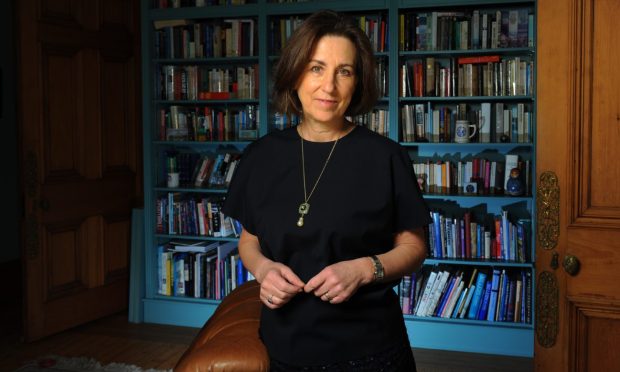The ‘Scottish play’ is synonymous with Perthshire, given the presence of Birnam Wood, Dunsinane Hill and the history of the real 10th Century Scottish king, Macbeth, who inspired Shakespeare to write the play.
It is a tale of naked ambition, bloody murder, guilt, chaos and supernatural interference and these themes – part of the curriculum for generations of British pupils – are having increased resonance with audiences in China.
A Chinese production of Macbeth is being performed this week at the Edinburgh Festival, with the male/female roles having been reversed and ‘Lady Ma’ playing the protagonist.
Incorporating martial arts and elements of Chinese theatre, this artistic merging of song and dance combines Chinese and Western drama through Cantonese opera.
In an interview with The Courier, Mr Xiang Xiaowei, Minister of Cultural Affairs at the Embassy of the People’s Republic of China to the UK, said China’s love of Shakespeare was an example of the strong and growing cultural ties between China and the UK.
“Shakespeare has always been a very hot topic, especially in the English language learning but also in theatre and drama in China,” he said. “Macbeth has been one of the most represented works of Shakespeare on Chinese stages.
“In 2015 the China-UK cultural exchange was successfully held, and later followed by the commemorative 400th anniversary of the passing of two great cultural figures from China and the UK: Tang Xianzu and Shakespeare.
“With the launch of these two important cultural events, cultural relations between our countries have reached a new height and started a new chapter.”
Mr Xiang Xiaowei was in Edinburgh for the launch of China Focus – the Edinburgh Fringe Festival’s celebration of excellence in Chinese theatre and dramatic production.
For the first time, the Chinese government has brought a diverse array of award-winning contemporary talent from East to West.
Eight shows from leading Chinese theatre companies are showcasing the most exciting, innovative and weighty productions which are making waves across the Chinese theatre scene today.
However, with the focus on Edinburgh, the senior Chinese government official also revealed that he has ambitions to tap into the cultural renaissance under way around the waterfront in Dundee. “I hope to visit Dundee one day because the creative industry there has been recommended to me many times,” he added.
Perhaps China’s interest in Macbeth shouldn’t be too much of a surprise. When international relations organisation the British Council surveyed 1,043 people in China in 2015, 68% said they liked Shakespeare, compared with 59% in Britain.
Asked whether Shakespeare was still relevant, 76% said he was, compared with 57% in Britain.
Jackie Killeen – Director, Scotland for the British Council – said there’s a “great love of Shakespeare” in the Far East. Last year the British Council had a year-long festival around the 400th anniversary of Shakespeare’s death and it was very popular in China.
Over the next few weeks, however, and following the signing of a cultural agreement between the Chinese and Scottish governments, the British Council will be using the Edinburgh Festival as an opportunity to broker as many positive relationships as possible with people, not just from China, but from around the world.
“Obviously culture and the arts are a very powerful platform for doing that and Edinburgh is quite uniquely placed for what happens here in August,” she added.
“We try to showcase Scottish art and Scottish work but we are also trying to make sure that audiences here and people here are getting access to diverse perspectives from around the whole world and that includes China, which I think can sometimes be a bit of a mystery to people.
“We would like to try to strengthen that understanding in as many ways as possible because it’s not just important in terms of giving a people a rich sense of the world but it’s also useful practically in making those links that would support economic interaction and education interaction as well.”
Ms Killeen said an important way of gaining a new perspective is through “people-to-people relationships” – which can give a completely different take on how countries are portrayed in the news.
She added: “Scottish artists and Scottish national companies are already doing very well in taking their work to China. For example, Scottish Opera is regularly travelling to China with some of its most innovative work. We know that there’s an appetite for and an interest in Scottish dance and Scottish music and Scottish theatre in China. We try to support more of that.”










